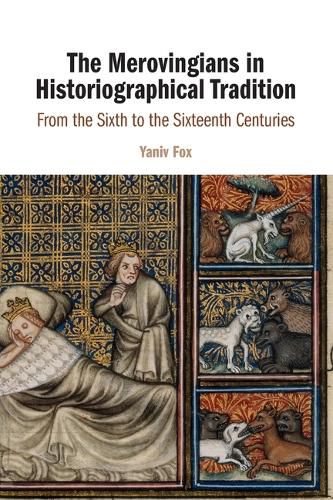Readings Newsletter
Become a Readings Member to make your shopping experience even easier.
Sign in or sign up for free!
You’re not far away from qualifying for FREE standard shipping within Australia
You’ve qualified for FREE standard shipping within Australia
The cart is loading…






The Merovingian centuries were a foundational period in the historical consciousness of western Europe. The memory of the ?rst dynasty of Frankish kings, their origin myths, accomplishments, and failures were used by generations of chroniclers, propagandists, and historians to justify a wide range of social and political agendas. The process of curating and editing the source material gave rise to a recognizable 'Merovingian narrative' with three distinct phases: meteoric ascent, stasis, and decline. Already in the seventh-century Chronicle of Fredegar, this tripartite model was invoked by a Merovingian queen to prophesy the fate of her descendants. This expert commentary sets out to understand how the story of the Merovingians was shaped through a process of continuous historiographical adaptation. It examines authors from across a millennium of historical writing and analyzes their in?uences and objectives, charting the often-unexpected ways in which their narratives were received and developed.
$9.00 standard shipping within Australia
FREE standard shipping within Australia for orders over $100.00
Express & International shipping calculated at checkout
The Merovingian centuries were a foundational period in the historical consciousness of western Europe. The memory of the ?rst dynasty of Frankish kings, their origin myths, accomplishments, and failures were used by generations of chroniclers, propagandists, and historians to justify a wide range of social and political agendas. The process of curating and editing the source material gave rise to a recognizable 'Merovingian narrative' with three distinct phases: meteoric ascent, stasis, and decline. Already in the seventh-century Chronicle of Fredegar, this tripartite model was invoked by a Merovingian queen to prophesy the fate of her descendants. This expert commentary sets out to understand how the story of the Merovingians was shaped through a process of continuous historiographical adaptation. It examines authors from across a millennium of historical writing and analyzes their in?uences and objectives, charting the often-unexpected ways in which their narratives were received and developed.